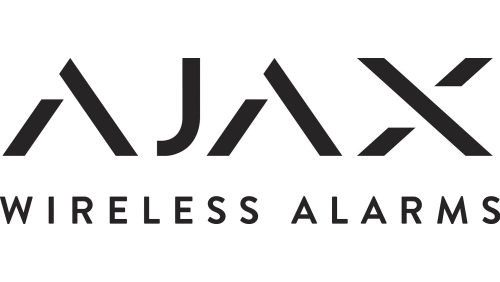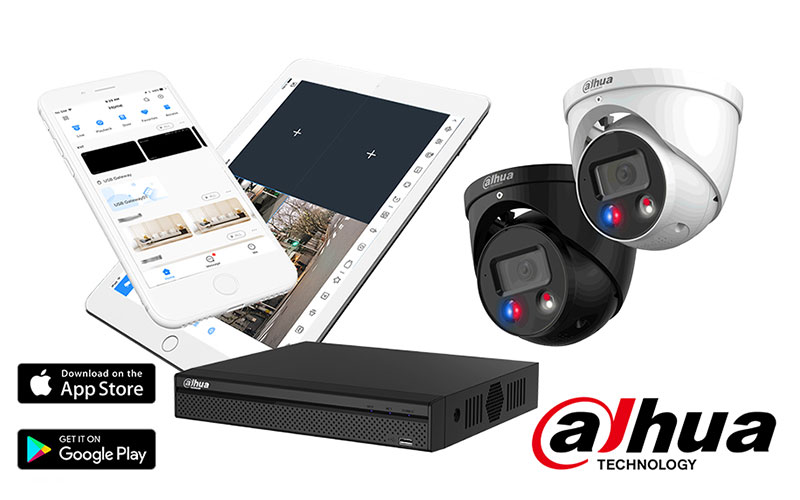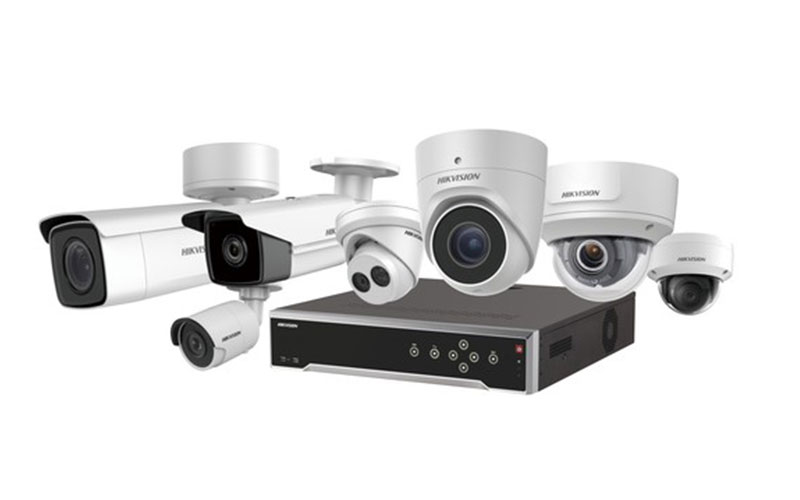State Of Art CCTV Systems
Major Brand Suppliers






Keep an Eye on Your Property With CCTV Systems Perth
Looking to stay on top of everything that occurs on your property?
At Connect & Protect our company specialises in providing state-of-the-art surveillance solutions tailored to meet your needs.
With cutting-edge technology and expert installation, we offer comprehensive CCTV systems that deliver peace of mind and protection for your home or business. Our range of high-resolution cameras, advanced recording systems, and remote access capabilities can be integrated with your home’s alarm systems and ensure you have complete control and visibility over your property, even from afar.
Our experienced team is committed to delivering superior customer service and ensuring your satisfaction. Invest in the best home security in Perth to safeguard what matters most to you.
Contact us today on 1300 443 448 for an obligation-free quote or to learn more!
Learn more about our CCTV options:
Our CCTV Systems
Dahua CCTV Systems
With their advanced features, including high-resolution cameras, intelligent analytics, and robust video management software, Dahua systems can effectively monitor and secure expansive areas.
Hikvision CCTV Systems
These systems offer a diverse selection of cameras and video management options, enabling users to tailor their surveillance solutions to specific needs and budgets.
What are the best types of CCTV systems Perth has to offer?
Several factors should be considered based on your specific requirements. Here are a few popular options:
Dome Cameras: These cameras offer a discreet design and are suitable for both indoor and outdoor surveillance. They provide a wide-angle view and are tamper-resistant, making them ideal for monitoring large areas.
Bullet Cameras: Bullet cameras are known for their long-range coverage and are often used for outdoor surveillance. They are weatherproof, have infrared capabilities for night vision, and can be easily mounted on walls or ceilings.
PTZ Cameras: PTZ (Pan-Tilt-Zoom) cameras are versatile and allow you to remotely control the direction and zoom of the camera. They are useful for monitoring large areas and can track moving objects.
Network/IP Cameras: These cameras use your existing network infrastructure to transmit video data. They offer high-resolution footage, advanced features like remote access, and can be easily integrated with other home security systems.
Thermal Cameras: Thermal cameras detect heat signatures and are effective for monitoring in low-light or challenging conditions. They can detect intruders and provide alerts based on temperature changes.
Remember, the best type for you will depend on your specific requirements, such as the location, area to be covered, lighting conditions, and budget.
How much does a standard CCTV system cost?
The cost can vary depending on several factors such as:
- Type and quality of cameras
- Number of cameras needed
- Complexity of the installation
- Any additional features or accessories required
However, to give you a rough estimate, basic systems with a few cameras may start from a few hundred dollars. As you add more cameras, and choose higher resolution or advanced features, the cost will increase accordingly. For larger properties or complex installations, the cost can range from a few thousand dollars to several thousand dollars.
It’s important to note that investing in a reliable and high-quality CCTV camera is crucial for optimal performance. If you’re looking for a more tailored quote, get in touch on 1300 443 448 for an obligation-free quote or to learn more.
CCTV System benefits
✔ Deterrence: Visible CCTV cameras act as a deterrent to potential criminals. The presence of surveillance systems can significantly reduce the likelihood of theft, vandalism, or other illegal activities on your premises.
✔ Crime Prevention: They help prevent crimes by capturing evidence that can be used for investigations and prosecutions. The recorded footage serves as valuable evidence in identifying perpetrators and resolving disputes.
✔ 24/7 Monitoring: You can monitor your property round-the-clock. This constant surveillance enables you to detect suspicious activities, respond promptly to emergencies, and ensure the safety of your premises and occupants.
✔ Remote Access: Many systems now offer remote access capabilities, allowing you to view live or recorded footage from anywhere using a computer, smartphone, or tablet. This feature is convenient for property owners or managers who need to monitor their premises while away.
✔ Employee and Customer Safety: They provide a secure environment for employees and customers. They can help prevent workplace incidents, monitor employee behaviour, and ensure adherence to safety protocols.
✔ Insurance Benefits: Having a CCTV camera installed may result in reduced insurance premiums for your property or business, as it demonstrates your commitment to the risk prevention.
✔ Peace of Mind: Knowing that your property is under constant surveillance provides peace of mind. Whether it’s your home or business, they give you a sense of security and control, even when you’re not physically present.
What is the installation process for CCTV Systems?
The installation process typically involves the following steps:
Step One: Consultation
A professional will schedule a consultation to assess your specific needs. They will discuss your requirements, inspect the property, and recommend the most suitable CCTV camera for your premises.
Step Two: Site Survey
A site survey is conducted to determine the ideal camera placements, identify any infrastructure requirements, and assess factors like lighting conditions and potential obstacles. This step ensures optimal coverage and camera positioning.
Step Three: System Design
Based on the consultation and site survey, a detailed system design is created. This includes determining the number and types of cameras, the positioning of recording devices, and any additional components like cables, power sources, or networking equipment.
Step Four: Equipment Installation
The installation team will proceed with mounting the cameras in the predetermined locations. They will connect the cameras to the recording device, ensure proper wiring and power supply, and make any necessary adjustments for optimal camera angles and views.
Step Five: Connection and Configuration
The recording device or Network Video Recorder (NVR) is connected to the cameras, and the system is configured to capture and store the video footage. This may involve setting up network connectivity, configuring motion detection settings, and establishing remote access capabilities if desired.
Step Six: Testing and Fine-tuning
After the installation and configuration, the system undergoes thorough testing to ensure all cameras are functioning properly, video feeds are clear, and all features and settings are working as intended. Fine-tuning adjustments may be made to optimise camera settings or improve image quality if needed.
Step Seven: Training and Handover
Once the CCTV camera is installed and tested, the home security provider will provide training on how to use and manage the system effectively. They will explain the functions and features, demonstrate remote access if applicable, and address any queries or concerns.
Step Eight: Ongoing Support
A reputable security provider will offer ongoing support and maintenance services for your CCTV camera. This includes periodic maintenance visits, software updates, troubleshooting assistance, and addressing any issues that may arise.
Frequently Asked Questions About CCTV Systems Perth
How long does the installation take?
The duration of a CCTV installation job in Perth can vary depending on various factors, including the size of the property, the number of cameras being installed, the complexity of the system, and any specific site requirements.
For a basic installation with a few cameras, the process can typically be completed within a day or two. This includes the camera mounting, wiring, connecting to the recording device, and configuring the system.
However, for larger or more complex installations with numerous cameras, multiple buildings, or specialised requirements, the installation process may take longer. It could range from several days to a few weeks, depending on the scope of the project.
It’s important to note that the timeline can also be influenced by factors such as weather conditions, accessibility challenges, and any unexpected complications that may arise during the installation process.
Which is the better choice: Wireless or wired CCTV?
Installation: Wireless CCTV systems are generally easier to install since they do not require extensive wiring. This makes them a convenient option for retrofitting or situations where running cables is challenging. On the other hand, wired systems require running cables, which may be more time-consuming and may require professional assistance.
Reliability: Wired CCTV systems tend to offer more reliable and stable connections. They are not susceptible to interference from other wireless devices or signal disruptions. Wireless systems, while generally reliable, may be subject to signal interference or range limitations, particularly if there are obstacles like walls or other electronic devices.
Range: Wireless systems offer flexibility in camera placement as they can be installed in locations where wired connections are difficult to establish. However, the range of wireless cameras may vary depending on the specific system and environmental factors. Wired systems, on the other hand, can cover longer distances without signal degradation.
Image Quality: Both wired and wireless systems can provide high-quality video footage. However, wired systems often have the advantage of transmitting uncompressed video signals, resulting in potentially higher image quality. Wireless systems may compress the video for transmission, which could impact image clarity to some extent.
Security: Wired systems are generally considered more secure since they do not transmit signals over the airwaves, making them less susceptible to hacking or unauthorised access. Wireless systems, while secure when properly configured with encryption protocols, may have a slightly higher risk of potential breaches.
Scalability: Wired systems typically offer better scalability, allowing for easy expansion by adding additional cameras or components. Wireless systems may have limitations on the number of devices that can be connected or may require additional network infrastructure to accommodate more cameras.
Ultimately, the choice between wireless and wired CCTV systems depends on your specific requirements, budget, and the nature of your property. Consulting with a professional security provider can help assess your needs and recommend the most suitable option for your situation.
Are Dahua cameras safe?
- Firmware Updates: Regularly updating the firmware of your Dahua cameras is crucial. Firmware updates often include patches and enhancements that address vulnerabilities and protect against potential threats.
- Strong Passwords: It is essential to set strong, unique passwords for your Dahua cameras and associated devices, such as recorders or network equipment. Avoid using default or easily guessable passwords, and consider using password managers to securely manage your credentials.
- Network Security: Properly secure your network to prevent unauthorised access to your Dahua cameras. This includes implementing strong Wi-Fi encryption (WPA2 or higher), enabling firewalls, and regularly reviewing and updating network settings.
- User Access Control: Restrict access to your Dahua camera system by assigning user roles and permissions. Limit access to only authorised individuals and regularly review and update user accounts to remove any unnecessary or unused accounts.
- Secure Remote Access: If you enable remote access to your Dahua cameras, ensure that it is done securely. Use encrypted connections (such as HTTPS or VPN) to protect data transmission and consider enabling two-factor authentication for an additional layer.
- Network Segmentation: Consider implementing network segmentation to separate your Dahua camera system from other devices on your network. This can help isolate potential breaches and limit unauthorised access.
- Vendor Support: Stay updated with Dahua’s advisories and guidelines. They often release recommendations and updates to address emerging issues. Promptly apply recommended security measures to ensure the ongoing safety of your system.
By following these best practices and staying vigilant about security measures, you can help ensure the safety and integrity of your Dahua camera system.
Our Accreditations




Why Choose Us

15+ Years of Experience
There is no problem we can’t solve

Fixed pricing structure
No hidden costs, no extra changing

Fully Licensed
ACMA & Police Security Licensed Agent and Installer

Easy booking & install
We customise a security system on the day of installation

Fast Free Quotes
We provide fast & accurate quotes, with no hidden costs

Trusted Dahua Seller
The largest seller of Dahua products in WA



